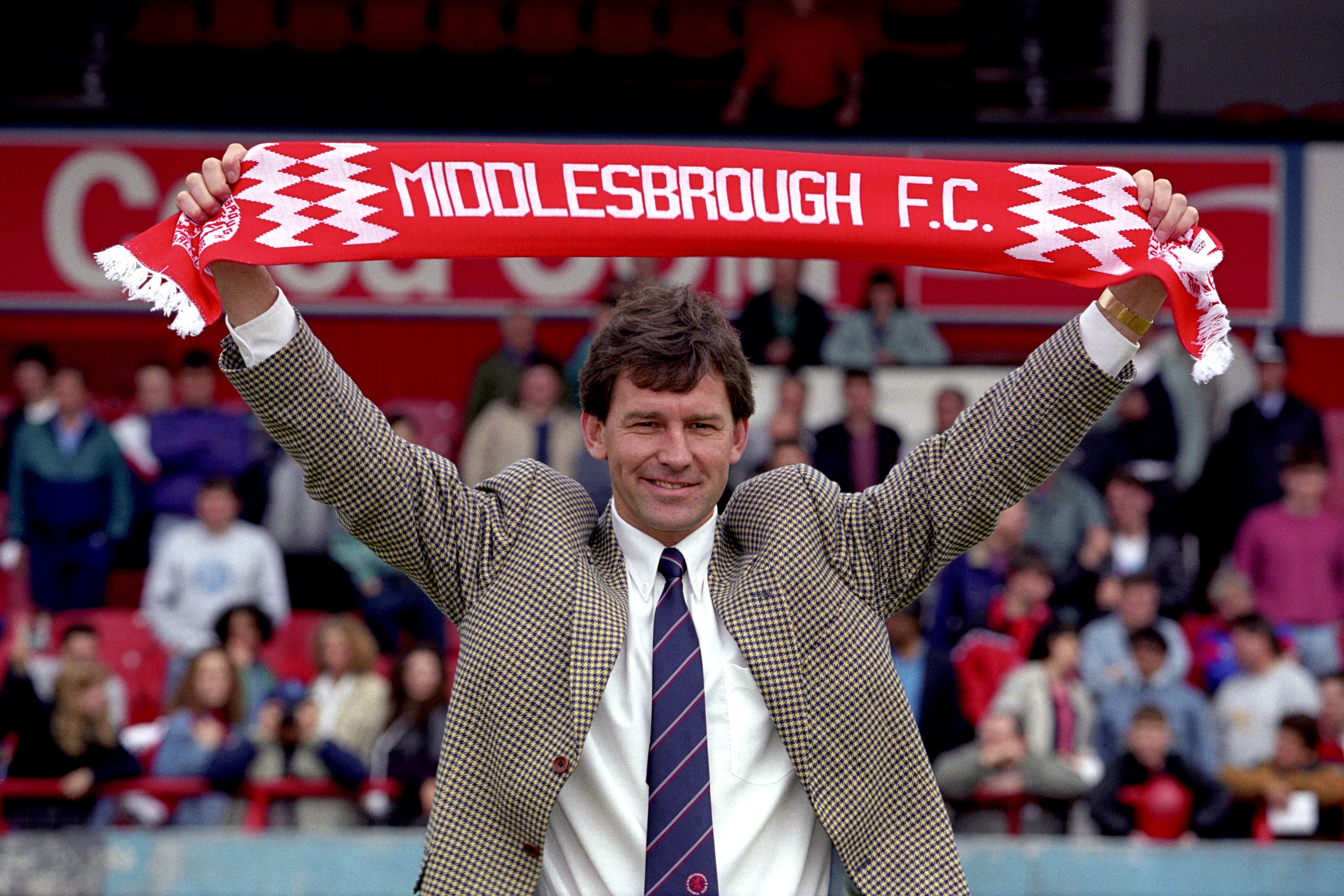The rise of Jack Grealish: From Aston Villa starlet to Manchester City's record-breaking signing
Jack Grealish became British football's first £100m player when he joined Manchester City this summer from Aston Villa, but he is more than the carefree playmaker we see each week tearing up the Premier League. As his former coaches and team-mates tell FFT, you don't know Jack...
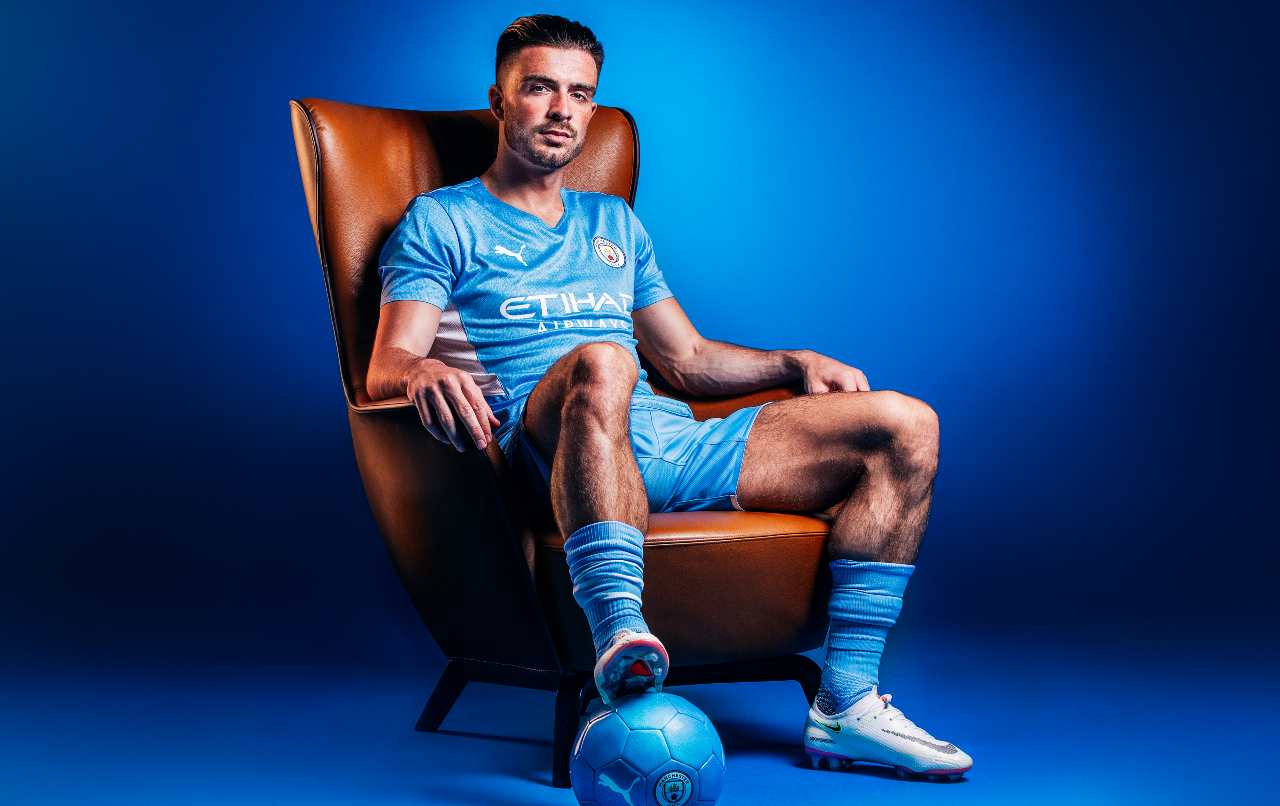
This cover feature on the rise of Jack Grealish first appeared in the September 2021 edition of FourFourTwo.
Subscribe to FourFourTwo today and save! You'll get 13 issues per year...
The man was wearing a flat cap, as he raced from the stand and swung a punch into the back of Jack Grealish’s head.
The Second City Derby was just nine minutes old, and St Andrew’s was in chaos. As Aston Villa’s Tammy Abraham and a steward teamed up to wrestle the pitch invader to the ground, Grealish sat stunned on the turf, trying to process what had just happened.
He’d been facing the other way, with no reason to suspect any imminent danger, when the fan rushed out from Birmingham City’s Tilton Road end. The first thing Grealish knew about it was as the blow connected with his head. The pitch invader was messing with the wrong man, at exactly the wrong time. Grealish had endured two and a half years of misery by then, having been unable to help his boyhood club out of the Championship. Only a week earlier, though, with Villa 13th in the table in early March 2019, Grealish had returned from a three-month injury lay-off and been made captain for the first time.
Buy the latest Manchester City kit for the 2021/22 season
In that comeback game, he’d scored the best goal of his career to put Villa 4-0 up at half-time against Frank Lampard’s Derby, meeting a corner with a thunderous volley from the edge of the box reminiscent of Paul Scholes at his very best.
Get FourFourTwo Newsletter
The best features, fun and footballing quizzes, straight to your inbox every week.
So, at St Andrew’s, the new Villa skipper knew how to react to such an unprovoked attack. Not by leaping up and chasing the wannabe Peaky Blinder, but by calmly taking stock, then letting his feet do the talking. Midway through the second half, Grealish fashioned an opening inside the Birmingham penalty area and struck the winner.
“It’s the best day of my life,” he beamed afterwards. “I just tried to get on with my job. I think I did.”
Grealish’s first two games as captain would begin a club-record run of 10 consecutive wins, propelling Villa to the play-offs and promotion out of nowhere. It was the pivotal week of his career, a moment from which he’s never looked back.
Just two years later, he’s an Aston Villa great, an England hero – and now Britain’s first £100 million player. Pep Guardiola and Manchester City don’t spend that sort of cash without very good reason. It takes more than a pitch invader to stop Jack Grealish...
“It was like looking at Maradona”
Across 213 Villa outings, Grealish delivered countless memorable moments. It was during one of the most memorable weekends of the club’s pre-Grealish era, though, that tragedy struck his family.
A lifelong Villa supporter himself, Grealish’s father Kevin had been in London ahead of the club’s FA Cup semi-final victory over Bolton in 2000, when he received a terrible phone call and immediately rushed back to the West Midlands. Nine-month-old Keelan Grealish, four years Jack’s junior, had died in his cot.
“You never ever get over losing a child,” Kevin later said. “Jack was only a kid, but he still remembers Keelan. He thinks about him with everything he achieves.”
Grealish’s younger sister Holly has cerebral palsy, and the family have always been incredibly close-knit. Jack’s Irish heritage prompted him to take up Gaelic football as a youngster, even involving a trip to Dublin to play for Warwickshire during half-time of the 2009 All-Ireland quarter-final between Dublin and Kerry at the cavernous Croke Park.
Football was always going to win the duel for his affections, however. He’d joined Villa as a six-year-old, after being spotted by scout Jim Thomas during a game on a local playing field. “You couldn’t miss him,” said Thomas. “He was very small, but he dribbled right the way through the team. It was like looking at Maradona.”
Villa knew they had a special talent. As Grealish progressed through the age groups, he continued to stand out – and not just for his giant calves and rolled-down socks, the latter borne out of superstition.
“One season, the socks we had kept shrinking and I wasn’t a first-team player, so I couldn’t ask for a new pair every day,” he explained. “They wouldn’t come over my calves. That season I started kicking on as a player, so I kept that as my style.”
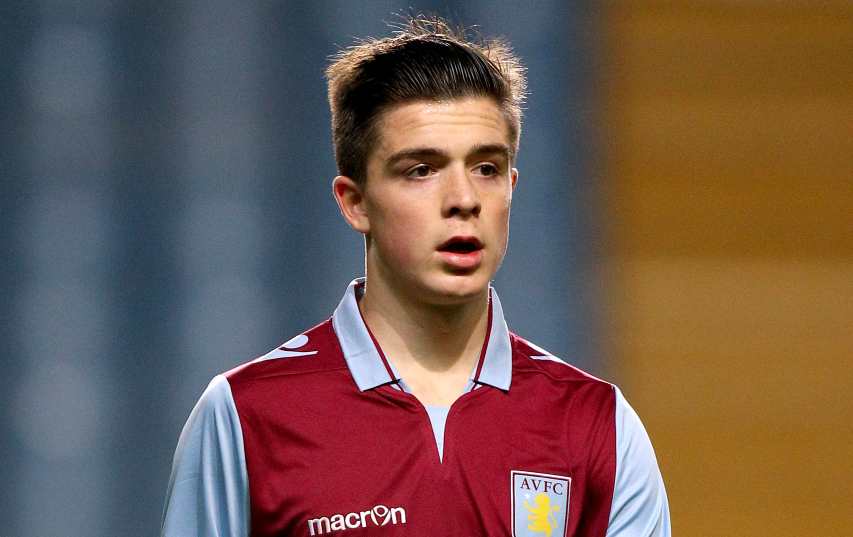
At 16, Villa’s first-team boss was starting to pay real attention. “When we had a home match, we could normally attend academy games on a Saturday morning,” Alex McLeish tells FFT. “This little guy captivated me every time I watched a game, I’ve got to say. The club were very excited about him – Bryan Jones was in charge of the academy at the time. I used to stand on the touchline, and it was like going to watch Michael Laudrup or something. I just wanted to see him get the ball time and time again.”
It wasn’t only McLeish who was impressed – other clubs were, too. With Grealish soon out of contract, compensation rules meant that Villa could have lost their starlet for as little as £200,000.
“We were told that Jack and his father had been in Rio Ferdinand’s restaurant with an agent who was attempting to take him to Manchester United,” says McLeish. “Bryan was conscious that other people were about to swoop, and it was very important that we got Jack on board again. We had to come up with a wee strategy to make sure he stayed at Aston Villa.
“Bryan asked me to be involved with it, and a lot of credit has to go to him – the fact he came to myself as the manager showed it was a critical situation, because normally the academy guys just get deals done and dusted. They don’t really need the manager’s supervision on it.
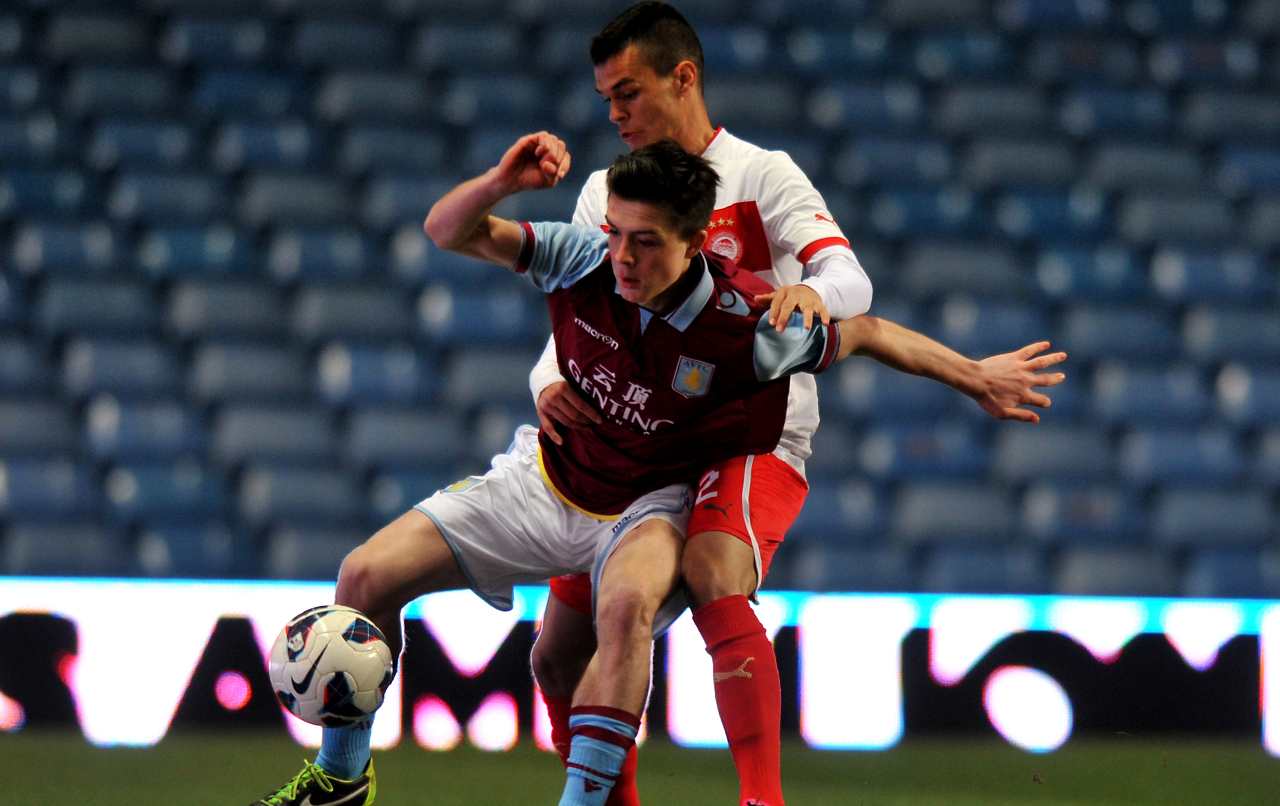
“We both agreed that it would be an absolute disaster for Villa if this mercurial kid left. He was showing such potential, what was he going to become? If he moved and became a superstar, we’d be remembered for that... and not in a good way.
“So I met Jack and his dad, and they came into my office. Jack loved the club, his dad as well, and they were both really keen for him to stay put provided we came to a decent agreement. Bryan had been conscious of the club’s budget and how far you can go with an academy kid, but we made sure he got the best deal going – probably the highest for an academy boy at that time.”
As part of Villa’s efforts to show how much they valued Grealish’s presence, McLeish also put the 16-year-old on the substitutes’ bench for a Premier League fixture against Chelsea in March 2012. Such a ruse had the added bonus of potentially increasing his value at a tribunal, should he depart that summer.
“It was to give Jack a bit of the big time, but also we had to try to protect ourselves if he left and there was a fee to be decided,” explains McLeish. “The powers that be would maybe say it was £500,000 or £600,000 – I’m not sure what the figure would have been, but the bargain basement price would have been absolutely disastrous. Any price would have been, because you can see what he’s become.”
Grealish soon committed his future to Villa, signing his first professional contract. That deal effectively saved the club more than £99m. “I wish I’d negotiated a little part of that for myself!” chuckles McLeish.
Notts so fast, son
McLeish departed B6 that summer, and was replaced by Paul Lambert. It would be two years until Grealish made his first-team bow for Villa – he was promoted to the under-19s alongside players two years his senior, and helped the club shock Europe’s biggest sides to win the NextGen Series, a precursor event to the UEFA Youth League.
“He was miles ahead of anything else in his age group – that’s why he was pushed into our team,” says Graham Burke, who joint-top scored in the tournament. “He was one of the standout players among older boys, and it’s not often you see that. His dribbling was so good. He’d go past two or three and he wasn’t satisfied – he’d stop, come back on himself and go again. The ball was glued to his foot.”
In the group stage, Villa travelled to Lisbon and shellacked Sporting 5-1. “Then we beat Ajax, with their famous academy,” continues Burke, now with Shamrock Rovers in his native Ireland. “In the semi-finals we played Sporting again, and Jack put us ahead in extra time – that was a huge goal. We played Chelsea in the final and they had a good team, but he won a penalty and I scored it. I don’t think anyone expected us to win the tournament, but it showed the quality we had – out of that side, it was Jack who really excelled and went on to make it.
Jack was so comfortable in every situation He’d go past people with ease, he could pick a pass, he could put a team on his back and drive them along. Everyone knew it was just a matter of time until he got his first-team opportunity
Graham Burke, Villa U19s team-mate
“It was a different brand of football against European teams, but it didn’t matter what country Jack was in or what pitch he was on, he was so comfortable in every situation. He’d go past people with ease, he could pick a pass, he could put a team on his back and drive them along, which he did in the semi-final against Sporting. He’s the best player I’ve ever played with. Everyone knew it was just a matter of time until he got his first-team opportunity.”
As it transpired, though, Grealish’s first senior experience wasn’t at Villa, but on loan at Notts County. “Paul Lambert was good for me, but I had a little falling out with him and I don’t think he wanted me around, so he said, ‘You’re going on loan’,” Grealish later recalled with a wry smile.
Arriving at Meadow Lane just days after his 18th birthday in September 2013, he joined a club sitting rock-bottom of League One. On his first start, the Magpies lost 5-1 at Leyton Orient, and not long after that, boss Chris Kiwomya departed. Shaun Derry took on his first managerial role.
“As soon as the session started on my first day, I realised we had a very special player,” Derry tells FFT. “The technical aspect of Jack’s game was above the level of a League One player. Callum McGregor [of Celtic] was there, too, both young players on loan.”
At first, the manager had to find a way to accommodate Grealish’s talent while trying to turn around results. “We didn’t go into Notts County and find that it clicked straight away,” he says. “It was a tough period, and at times you’re searching for answers; you’re open to making changes and experimenting with the team. But I had a conversation with my assistant Greg Abbott, who said it was about trusting a young player, putting your belief in him and letting him experience some pretty poor performances – moments when it would have been easier just to bring him off after an hour and then leave him out of the next game.”
Grealish repaid that belief in a December clash with Gillingham. With three minutes to go, he picked the ball up on the left before sashaying past three defenders to the other side of the penalty box. Racing into the area, he slammed a shot into the top corner – not bad for your first senior goal.
“That was the big moment, to see a special goal like that, in a game that was important to us,” remembers Derry. “His dad was in the stadium and he ran straight to him – I think he got booked because he ran into the crowd! I played for Notts County when I was 18 and my dad watched my games, too – those are brilliant moments.
“At Villa, Jack had probably been playing in teams that were winning, so it was a different challenge for him. It was a pressure pot environment at Notts County: a big League One club who didn’t want to get relegated to League Two. Opponents would be physical with him, which was a learning curve – he’d take some heavy blows and sometimes he didn’t like it, but he always got back on his feet and had the bravery to take people on again and again.
“As a person, he was incredibly humble and polite. Whenever I had any one-to-one conversations with him, he was a smart kid. He was still a bit immature in some ways – he’d probably not recognise the importance of certain drills we did, because all he wanted was to have the ball at his feet. Off the field there were situations – only once or twice, not often – where perhaps his timekeeping let him down slightly or he made a couple of wrong decisions. That’s to be expected of an 18-year-old, though.”
But on the pitch, Grealish’s effervescence captivated Meadow Lane regulars like few before or since.
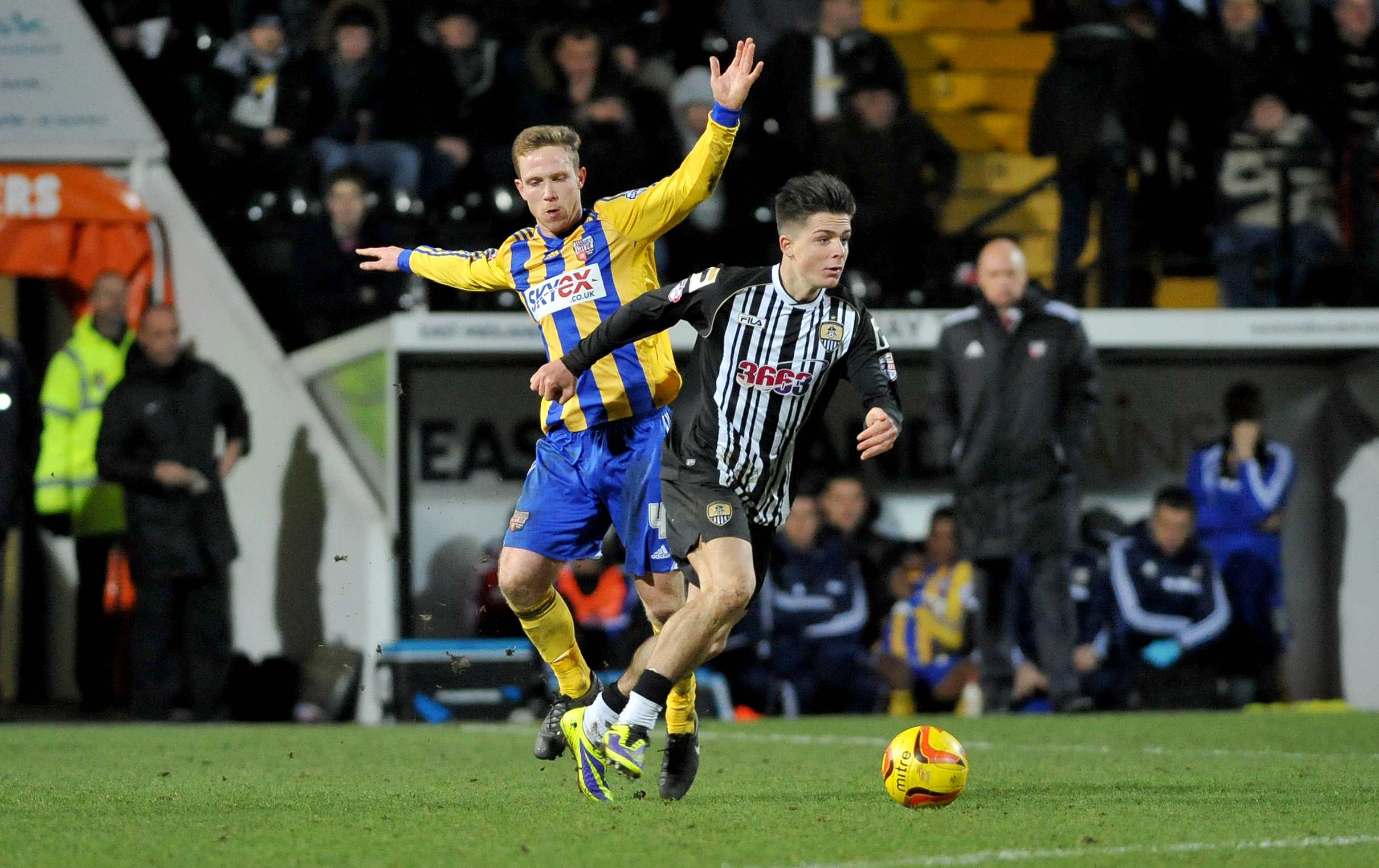
“He was outstanding and soon became our go-to guy; someone we could rely on to win games,” continues Derry. “He had a different kind of belief – it wasn’t arrogance, just this superior belief that he knew he was a good player. I love those players.
“Sometimes in football, we’re at fault for overlooking individuality – we’re forever looking for a perfect shape and system, and we’ve got to be careful with individual talents like Jack who want to go for the jugular and take on the opposition. Sometimes they’re going to lose possession, but they get people off their seats.
“Jack is a maverick, and I played with a few: Adel Taarabt at QPR was a magician, but frustrating at the same time. At Portsmouth we had Robert Prosinecki, who was amazing but could be found wanting on the defensive side because he didn’t really see the value of that. Playing with them helped me to handle someone like Jack.
Generally, it was the arm around the shoulder and telling him how good he was. That’s what I wanted, actually, to tell him just how good he was. Because he was...
Shaun Derry, on Grealish at Notts County
“You had to be honest with him, and some days Jack didn’t like what I said. Generally, it was the arm around the shoulder and telling him how good he was. That’s what I wanted, actually, to tell him just how good he was. Because he was...”
Grealish’s loan deal was due to expire in January, but he opted to stay and continue the club’s battle against relegation.
“Villa wanted him back, and he could have gone to clubs at Championship level,” reveals Derry. “But I spoke to Jack and his dad, to encourage them to put a little bit of pressure on Villa from their end. Jack wanted to finish what he’d started. He’d enjoyed it with us and stayed loyal to the cause. If he hadn’t stayed, we’d have been relegated.”
As it was, Grealish’s five goals and seven assists ensured Notts County’s survival on the final day of the League One season. He was a talisman at 18.
Country vs country
Four days later, Lambert handed him his Villa debut, as a late substitute in the Premier League at Manchester City. In the early parts of 2014/15, Grealish was a regular member of the matchday squad, even if his appearances off the bench were only fleeting – a lot more so than many Villa fans would have liked.
A clamour had already grown for the teen talent, who had penned a fresh four-year contract to ward off interest from Chelsea and was widely regarded as the Midlanders’ great new hope. But Lambert took a cautious approach in terms of game time, eager not to expose Grealish to too much too soon.
“Paul was good with young players,” says Michael Watts, Villa’s head of performance at the time. “There were a lot of calls for Jack to be playing regularly, but the manager’s job was to protect him and make sure he could develop. You see cases like Michael Owen and Wayne Rooney who were superstars at 16 or 17, but sometimes people say they weren’t protected at that young age, which eventually leads to injuries and problems further down the line.
“Part of their development is drip-feeding them because they’re still boys – they’re not physically developed or used to that amount of training and competition.”
Owen and Rooney peaked at a young age, but Grealish continues to improve as he enters his late 20s.
“People focus on his technical ability, but athletically he was really gifted, too,” adds Watts. “He was up there with the first-team squad even at 17 or 18 – he was an anomaly at that age, because players don’t tend to stop developing physically until about 23 or 24. If you wanted him to produce strength and power, he could do that. If you wanted him to be aerobically strong and run all day, he could do that.
“You never saw him get stressed out either – he’d never overthink stuff. He had the full package and he simply loves football. If Jack wasn’t a professional footballer, he’d still be playing on the parks every week. Even in gym sessions, he’d still have a football – you’d have to tell him to put it away.”
Lambert had gone by the time Villa hosted West Brom in a 2015 FA Cup quarter-final. New boss Tim Sherwood chucked Grealish on for an eventful cameo – in 16 minutes he laid on the assist that settled the tie, before being sent off for collecting two yellow cards, the second for simulation.
Despite the dismissal, Sherwood had seen enough to be impressed: soon Grealish was starting regularly, as the Villans moved out of relegation trouble and stunned Liverpool in the FA Cup semi-finals. “I was at Wembley that day, and for me he was the best player on the pitch,” says Burke.
It was a special moment for the whole Grealish family.
“When I remember the FA Cup semi-final against Bolton and the news we received that day, then I think about the way Jack played against Liverpool – he brought us so much happiness,” his father later explained.
Villa lost 4-0 to Arsenal in the final, but Grealish’s performances prompted the culmination of a long-running tug of war – since 2011, both England and the Republic of Ireland had been vying for his services.
“I was head of talent ID with the FA – I’d seen Jack play a few times and I liked him,” says Kenny Swain, a European Cup winner with Villa in 1982. “We’d identify players at 15, monitor them over that season, then call them into a training camp. I thought he was a talented player and Villa’s academy manager Bryan Jones said, ‘Kenny, I think he’s as good as we’ve had in my time here’. That’s some praise, because the club have produced some good players over the years. Jack came along to the first training camp and got through the first day OK, but then went home ill.”
Overnight, Grealish collapsed.
“I was in the bathroom, then I woke up on the floor,” he later explained. “I don’t know whether it was nerves, I’m not sure. The next day I was ready to train again, but for medical reasons I couldn’t.”
The next time England called Grealish up, he had to go home again because of injury.
“Then towards the end of the season, we were at the Nordic Tournament hosted by Sweden, Norway, Denmark, Iceland and the Faroe Islands,” explains Swain. “This was my one chance to look at him again – it was an eight- or 10-day trip, so we’d properly get to know him. I rang Bryan Jones and he said, ‘Take him, no problem’, but later I heard he wasn’t coming. I contacted his mum to say I thought he’d have an absolutely fabulous time with us, but she said she didn’t think he wanted to go. He was being courted by the FAI, who played him above his age group, which was a temptation.”
Grealish turned out for Republic of Ireland Under-17s and Under-18s, at a time when England’s record in the younger age groups wasn’t quite what it is now.
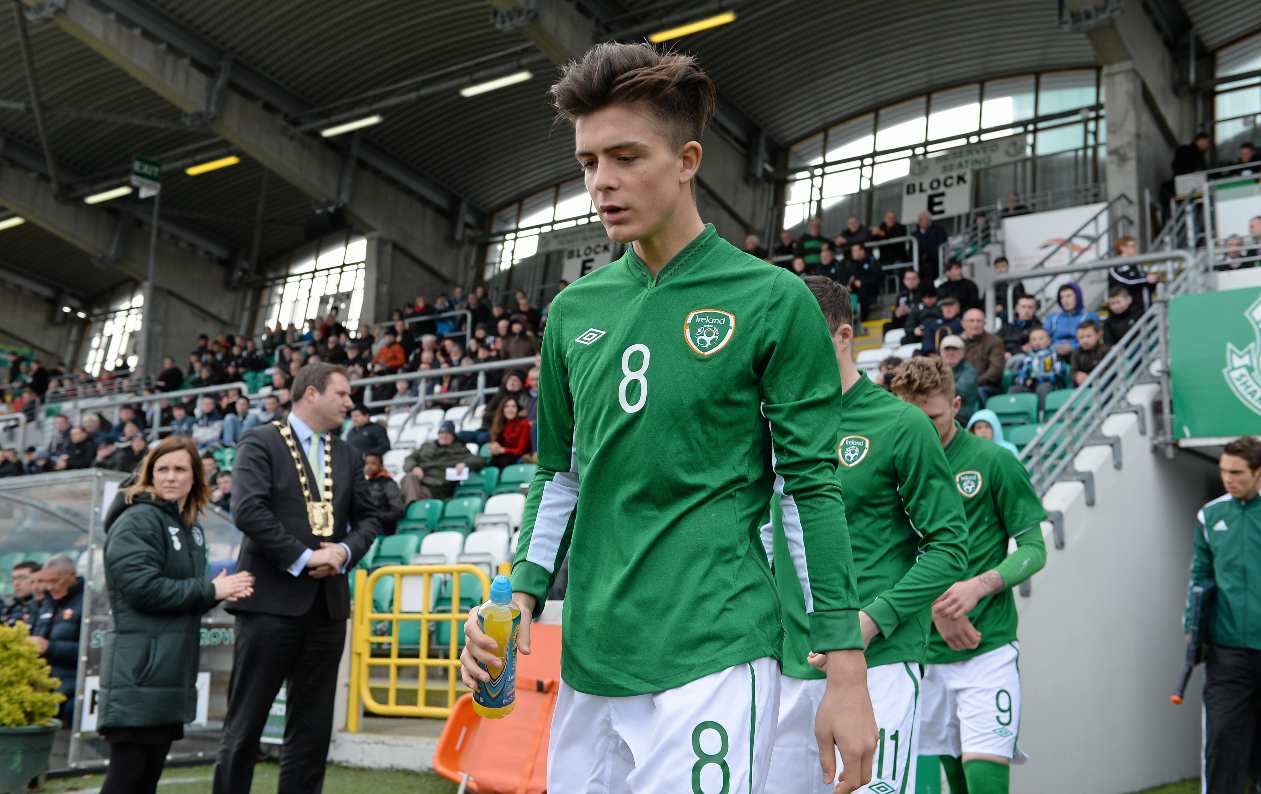
“That was one of the rare occasions when we didn’t qualify for the finals of the UEFA Under-17 Championship,” England’s then coach John Peacock tells FFT. “Qualification is about fine margins – with Jack involved, who knows if we would have made it? He’d always been at the forefront of our thinking.”
But even after Grealish began to represent Ireland, there was still uncertainty about his long-term international future. “At one point, his dad approached me and said, ‘I think Jack’s ready to have a go with England’,” says Swain. “I met up with them, took them to St George’s Park and introduced them to the under-19s manager Noel Blake, and the technical director Dan Ashworth. I’d already asked Blakey if he thought Jack was up to the mark and good enough to play a year higher up.
“Blakey was going to invite him into the U19s squad the following month, and again, I don’t know what happened. He stayed with the Republic and they put him in the U21s, but we did try awfully hard.”
Ireland boss Martin O’Neill had even tried to call Grealish up for their senior squad in 2014, during a period when his assistant Roy Keane was also Paul Lambert’s number two at Villa. Grealish politely declined, deciding at that point to keep his options open. England Under-21 boss Gareth Southgate confirmed that renewed attempts were underway to persuade him to represent the Three Lions.
Not long after Grealish helped Villa to the FA Cup final, Ireland made another attempt to select him for the senior squad – this time for a Euro 2016 qualifier against Scotland, and a friendly... against England. Minutes before the squad announcement, though, Grealish was removed from the list. Again, he wasn’t ready to commit.
That August, he met with Roy Hodgson in a box at Villa Park, after a match against Manchester United. A month later, Grealish confirmed he’d decided to play for England.
“It was a relief when I heard that,” Swain smiles now. “I thought ‘Bloody hell, at last!’.”
“Jack, you could die...”
Grealish started that 2015/16 campaign as a Villa regular once more, but his career was about to take an unexpected turn. Despite his presence, the team lost seven league games in a row and Sherwood was sacked, with the club bottom of the Premier League table. They remained there for the rest of the season – Grealish had a difficult relationship with replacement Remi Garde, who dropped him to the under-21s for visiting a nightclub hours after a 4-0 thumping at Everton. The Frenchman wasn’t an admirer of Grealish’s happy-go-lucky approach to life.
“He just told me off for smiling,” the baffled playmaker once told Gabriel Agbonlahor.
Garde lasted only until late March, but Grealish finished the campaign by setting a new Premier League record: he featured in 16 games... and lost all of them. Few blamed the player – just like Gareth Bale’s 24-match winless start at Tottenham, the record was symptomatic of the team’s general malaise.
“As a club, we were a mess at that point,” remembers Michael Watts. “There were a lot of things going on behind the scenes and it was a difficult dressing room to be in. I’ve never experienced so much dysfunction in one season. The fans and maybe people inside the club were looking at Jack to save the club, to do something crazy-special and pull a rabbit out of a hat. But no matter how talented Jack was, it was too much to ask – there were another 28 players who needed to do more as well.”
For the first time in 28 years, Aston Villa were facing life outside the top flight. It was a devastating blow for Grealish, the boyhood fan, and the player with England ambitions.
He did still get his first Three Lions call-up that summer, linking up with Southgate’s under-21 squad at the Toulon Tournament. He scored twice in a 7-1 win over Guinea too, but started only two of England’s five games – the midfielder was an unused substitute when they defeated France in the final, with Ruben Loftus-Cheek taking the No.10 role.
Grealish didn’t make the next U21 squad before Southgate became the senior team boss. On the first day of the Championship campaign under new Villa chief Roberto Di Matteo, he found himself on the bench for a miserable loss at Sheffield Wednesday.
“He was streets above everybody else in that squad – he shouldn’t have been playing in the Championship,” recalls Tommy Elphick, Villa’s new captain after joining that summer. “He had a hunger to get the club back where they belonged and shouldered much of that responsibility, but he didn’t start the opening game. The manager wanted to go for a bit more experience and know-how, but training with him, I remember thinking, ‘How is this lad not starting?’.”
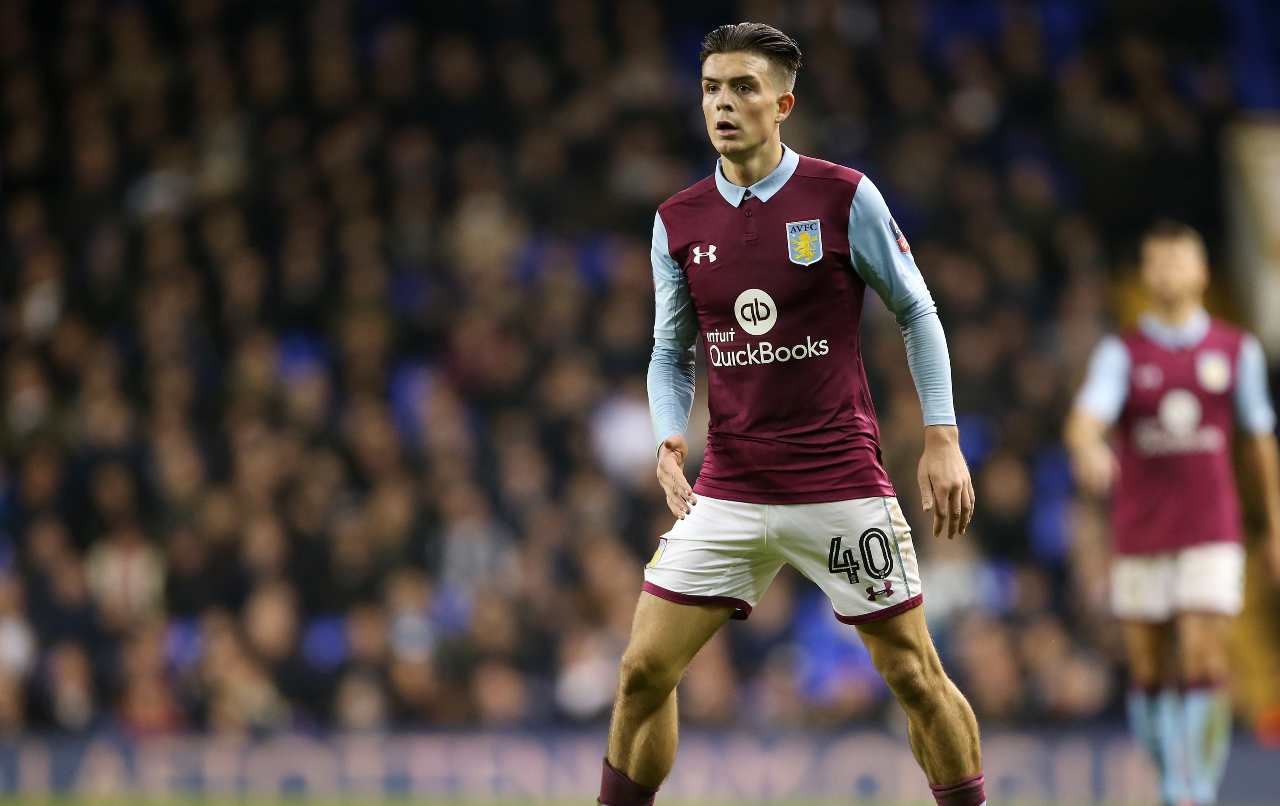
Villa were a lowly 19th when Di Matteo was sacked after just 11 league games – a period during which Grealish had again irritated his boss by reportedly heading to an all-night party. Di Matteo became the third successive Villa boss to publicly admonish the No.10 for his off-field actions; Sherwood had also been forced to intervene, after pictures emerged of Grealish sprawled in the street following a night out in Tenerife.
Grealish had problems on the field, too: during Steve Bruce’s first match in charge, television cameras caught him stamping on Wolves defender Conor Coady, resulting in a retrospective three-match ban. In February 2017, he was sent off for a second bookable offence against Nottingham Forest and then spent two months on the bench.
Villa finished down in 13th, and Grealish’s career was in serious danger of stalling. Aidy Boothroyd called him up for the 2017 U21 Euros, but Grealish didn’t play a single minute at the finals in Poland. After the tug of war for his services, he was about to turn 22, and there was a genuine threat that his England prospects could be over almost as quickly as they had begun.
A week before the start of the new season, things got even worse. Facing Watford in a tribute match for the late Graham Taylor, Grealish took an accidental knee in the back while jumping for a header with Tom Cleverley.
“My kidney split in two places – it was pouring with blood internally for about five hours,” Grealish later revealed. “It’s the worst pain I’ve ever been in. I was rushed in for an operation – before it happened, the surgeon had to tell me the consequences of what could happen if it didn’t work. He looked me in the eye and said, ‘Jack, you could die’. I was genuinely scared.”
The surgery was successful, but Grealish spent three months on the sidelines. He was grateful for the way Bruce had regularly kept in contact during the darkest moments, and returned more determined than ever to repay his manager’s concern.
Also guided by the newly arrived John Terry, Grealish helped Villa to reach the play-offs, then came close to a sensational solo goal at Wembley, in a final they ultimately lost to Fulham. There would be a third season in the Championship to come.
Worse still, for a period that summer, Villa looked to be in dire financial trouble. Spurs began to circle for Grealish and Bruce even admitted that his sale looked inevitable. Villa were said to be ready to accept just £6m, but chairman Daniel Levy took his time over negotiations and attempted to force the fee down further. It proved a bad move: Villa’s finances were suddenly aided by a takeover and the asking price rocketed to £40m. “If Jack had joined Tottenham that summer, there’s no doubt in my mind that Aston Villa wouldn’t be in the Premier League today,” insists Elphick.
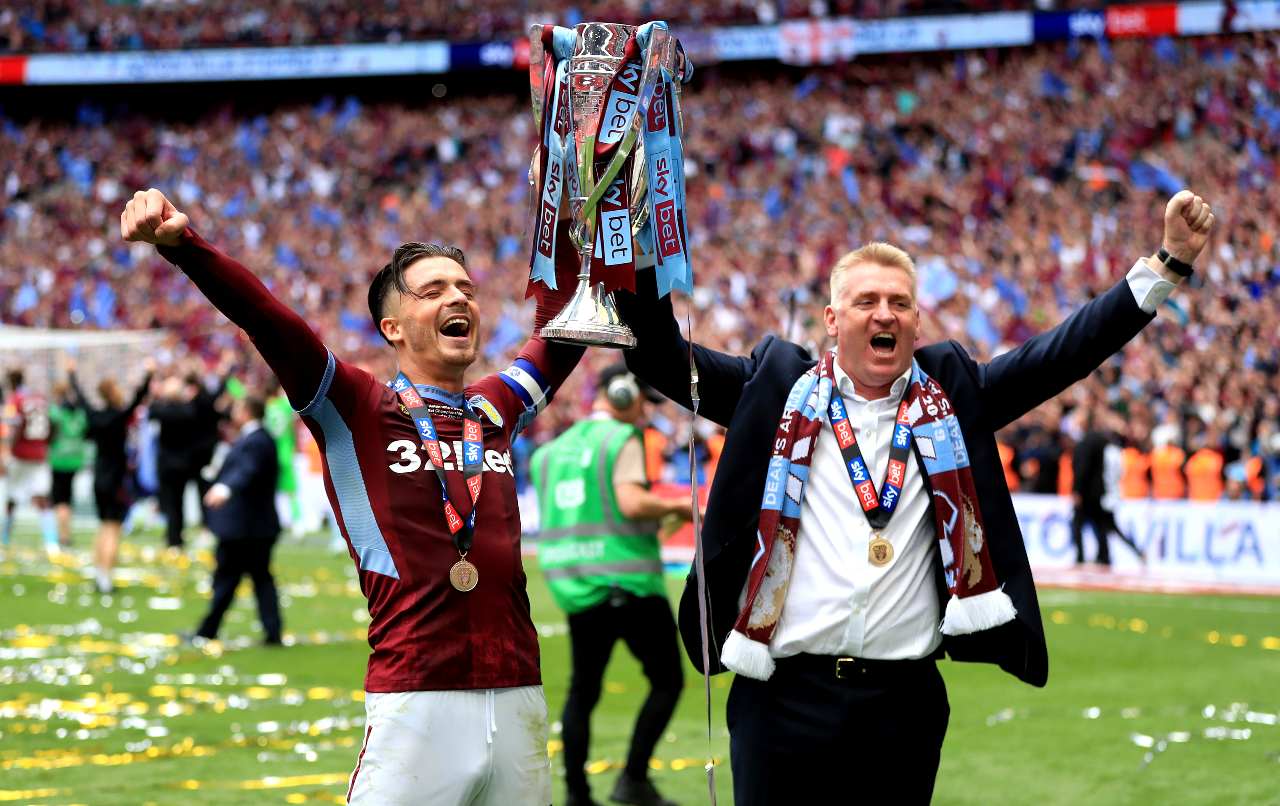
Even with their star man still at the club, however, promotion initially looked unlikely. Villa started 2018/19 poorly, a fan threw a cabbage at Bruce, and the manager was sacked. Not long after Dean Smith’s arrival, Grealish was ruled out for three months with a shin injury.
The Midlanders won only two of their next 13 games, and were drifting to another mid-table finish: had it not been for Grealish’s March return, and Smith’s brainwave.
“Making Jack the captain was an absolute masterstroke from Smith,” explains Elphick. “They are both boyhood Villa fans and they buzzed off each other. Dean has a wonderful way of not forgetting the human element to a football player – he’d come in sometimes and have craic with Jack over the last game, or a game that was on telly the night before. That period when he became the skipper was the making of Jack.
Making Jack the captain was an absolute masterstroke from Dean Smith. They are both boyhood Villa fans and they buzzed off each other. That period when he became the skipper was the making of Jack
Tommy Elphick, ex-Villa captain
“He’d been out injured but was desperate to get back, and the amount of work he was doing in the gym was unbelievable. He came back a completely different specimen.
“In his first game as the captain, he scored that outstanding volley against Derby which whistled over my head. Then there was the Birmingham episode, which could have been a really serious moment – the lad who got on the pitch could have been carrying anything. Jack could have thought, ‘I need to get off, my head’s not in the right place’, but his way of getting back at that fella was by scoring the winning goal.”
Villa charged into the play-off semi-final against West Brom. The tie went to a penalty shootout at The Hawthorns – Grealish scored and Villa were heading back to Wembley. This time, they defeated Derby to return to the top flight. After three Championship campaigns, captain Jack was back in the big time.
Super Jack, super sub
Grealish only had one Premier League goal to his name at that point, but another eight followed in 2019/20 as Villa also reached the League Cup final, losing to Manchester City. The skipper had been imperious in a tough semi-final second leg against Leicester, delivering the assist for Matt Targett’s opener to help send Villa through 3-2 on aggregate.
When lockdown hit two weeks after the final, Smith’s side had lost four consecutive games – their last one, 4-0 to the Foxes – and sat 19th. Grealish hit the headlines again for the wrong reasons: hours after urging people to remain at home, he was photographed looking dishevelled after crashing his Range Rover into parked cars, wearing one black slipper and one white slider sandal. Criticism was widespread, but he responded on the field when the Premier League restarted. On a dramatic final day of the season, he rifled home at West Ham to secure Villa’s safety. As if it could have been anyone else.
A clamour, not dissimilar to his younger days, was gathering for Grealish to get his first call-up to Southgate’s England squad – only now, it was right across the country. Even Prince William, a Villa fan who sent a hand-written letter of support to Grealish following the St Andrew’s attack, got involved in the campaign. “I’ve given Gareth a little elbow nudge to say, ‘Why is Grealish not in the England squad?’” he grinned.
Initially, Southgate resisted that friendly royal intervention, but when Marcus Rashford withdrew from the Three Lions’ September fixtures through injury, Grealish was drafted in as a replacement and made his debut as a substitute in Denmark.
A week later, amid sustained interest from Manchester United and Arsenal, he signed a new five-year deal with Aston Villa which contained a £100m release clause. In early October, he bagged twice and assisted three more goals in a stunning 7-2 victory over champions Liverpool, as Villa won their first four games of the 2020/21 season.

The plaudits only intensified, not least after he started his first competitive England game against Belgium. Grealish befuddled Thomas Meunier with a backheeled flick over the wing-back’s head, in a performance so impressive that he immediately established himself among fans as the new Messiah, barely six months after he’d been a very naughty boy. That escalated quickly.
Despite that, a three-month injury lay-off ruled him out of England’s March 2021 fixtures, with reports suggesting that even if fit again, he may be in danger of missing out on Southgate’s Euro 2020 squad. UEFA’s decision to increase squads to 26 players ended even the remotest possibility of that happening – particularly after he helped Villa beat soon-to-be European champions Chelsea on the final day of the campaign.
At the Euros, Grealish’s star rose further – despite starting just one game, against the Czech Republic when England had already secured their place in the last 16. He set up Raheem Sterling’s winner in that match, but for Grealish, the tournament was almost a flashback to his days as an 18-year-old under Paul Lambert: used sparingly as a super sub, while almost an entire fanbase pleaded for his inclusion.
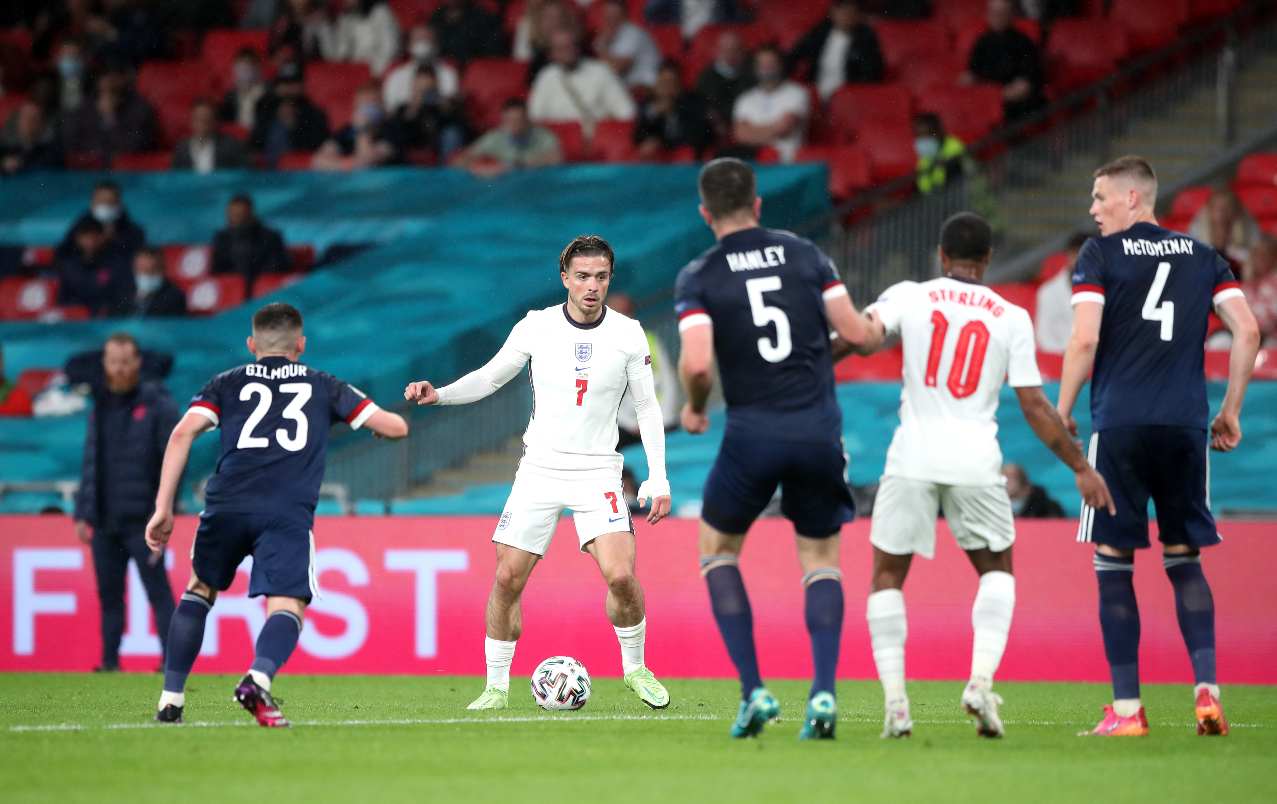
“I went to Wembley to watch Jack play Scotland against Callum McGregor, and I was so proud of him and where he’s got to,” says Shaun Derry, his former boss at Notts County. “My son Jesse is 14, and his favourite player in the whole world is Jack Grealish – Jack was really kind to send him a lovely message a few months ago.
“Our national team has been crying out for somebody like Jack, and we want to see more of him. He gives you hope.”
Against Germany, Grealish turned hope into reality. After his introduction from the bench was greeted by one of the loudest roars Wembley has ever heard, the Brummie magician provided the spark that won the last-16 clash by playing a part in both goals. It seemed like the start of something, but didn’t prove to be – Grealish was an unused sub against Ukraine, subbed on against Denmark, then subbed off again in the final minutes of extra time as Southgate sought more defensive solidity.
Released from the bench when the final against Italy headed to a shootout, Grealish hung around optimistically in Southgate’s eyeline, desperate to be asked to step up, just as he had in the play-offs for Villa two years earlier. Once again he was overlooked.
Pep Guardiola had seen more than enough, however. If Southgate has held concerns about the defensive side of Grealish’s game, the Manchester City manager clearly thinks they can be overcome – even the supremely talented Kevin De Bruyne has to work like a Trojan in Guardiola’s system.
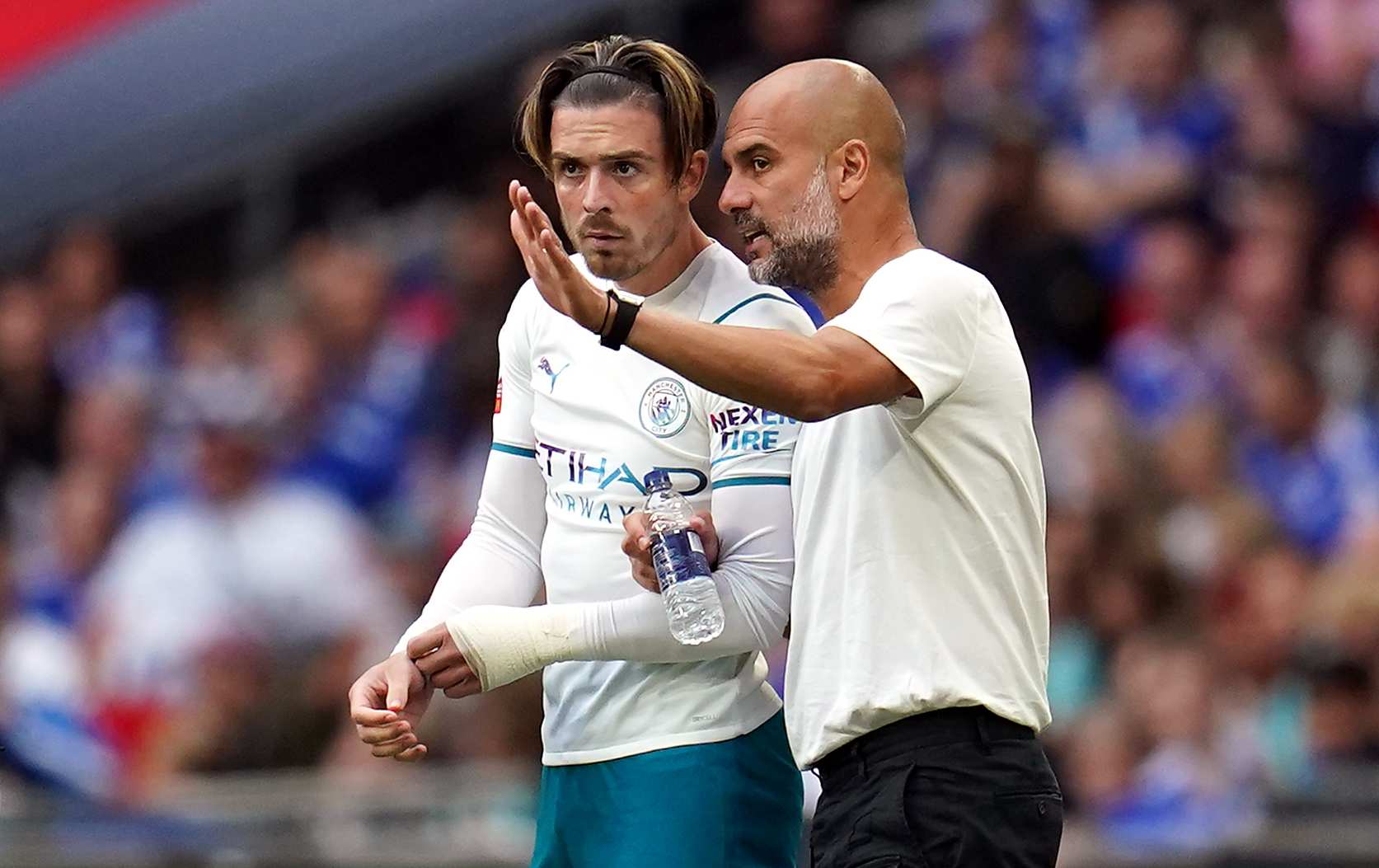
That one of the greatest managers of all time was prepared to make Grealish Britain’s first £100m player tells you everything you need to know about the ability possessed by City’s new signing. In 19 years on the books of his boyhood club, he established himself as an Aston Villa great. Now, he’ll be playing Champions League football for the first time, and challenging for every major prize going.
“Dean Smith is a hell of a manager, but Pep Guardiola is regarded as the absolute God of football – he improves every player he works with and it will be great to see what he can do with Jack,” says Grealish’s former Villa team-mate Tommy Elphick.
“He gets better with better players around him, because he gets more space. He’s like silk – he floats, he glides. He still has that innocence, why we all fall in love with football when we’re kids; the ability to do something and wow a crowd. I’m so pleased at how he’s done – he’s got a heart of gold.
“He donated a load of stuff to a hospice, and I remember finding out that he’d paid for a Villa fan’s funeral – not for attention, but because he cares. You could always tell that Jack loved Aston Villa.”
Grealish’s ultimate ambition may well be a year down the line - the new £100m man will hope consistent game time in the Premier League’s upper reaches convinces Southgate to give him a key role at the 2022 World Cup.
“A few years ago I told Gareth Southgate, ‘You lucky b*****d, you’re going to inherit some of the best talent we’ve ever had,’” Kenny Swain smiles now. “After I’d finished at the FA, he came up to me and said, ‘You were right’. Jack wasn’t even an England player then – he’s the bonus on top of that, and there’s still more to come from him.”
“He’s gone from a precocious talent to a superstar,” is how Alex McLeish sums it up.
From the start, everyone knew that Jack Grealish was capable of something special. In early August, he made history – now, he’s ready to take on the world.
Subscribe to FourFourTwo today! Guarantee the finest football stories and interviews dropping on your doorstep first every month.
Restock your kit bag with the best deals for footballers on Amazon right now
NOW READ
PREVIEW Will Champions League heartbreak knock Manchester City off their stride?

Chris joined FourFourTwo in 2015 and has reported from 20 countries, in places as varied as Jerusalem and the Arctic Circle. He's interviewed Pele, Zlatan and Santa Claus (it's a long story), as well as covering the World Cup, Euro 2020 and the Clasico. He previously spent 10 years as a newspaper journalist, and completed the 92 in 2017.


